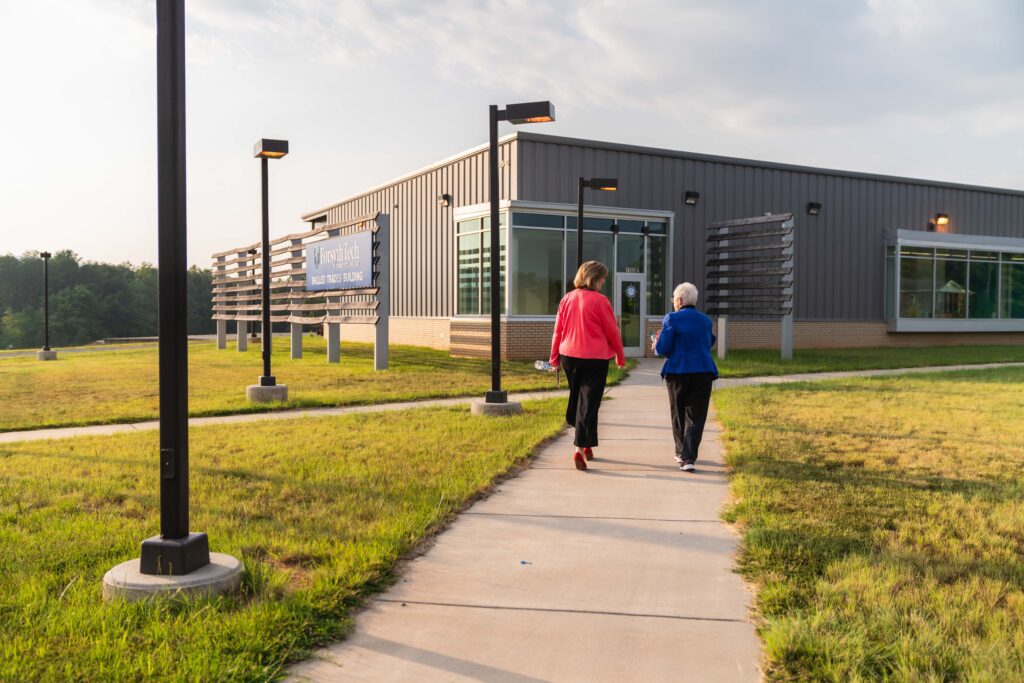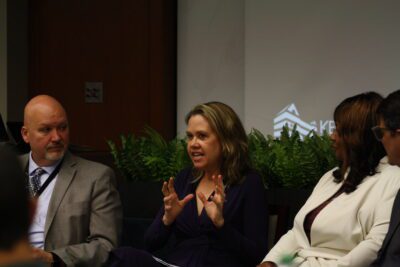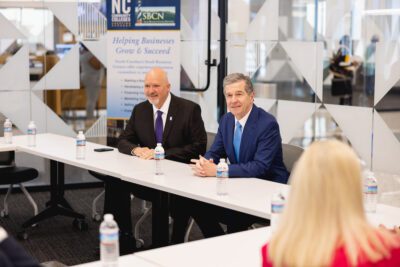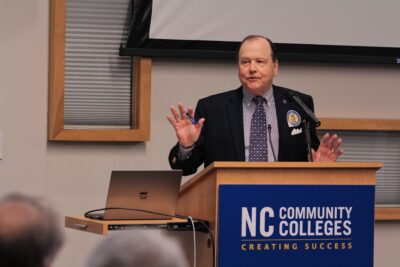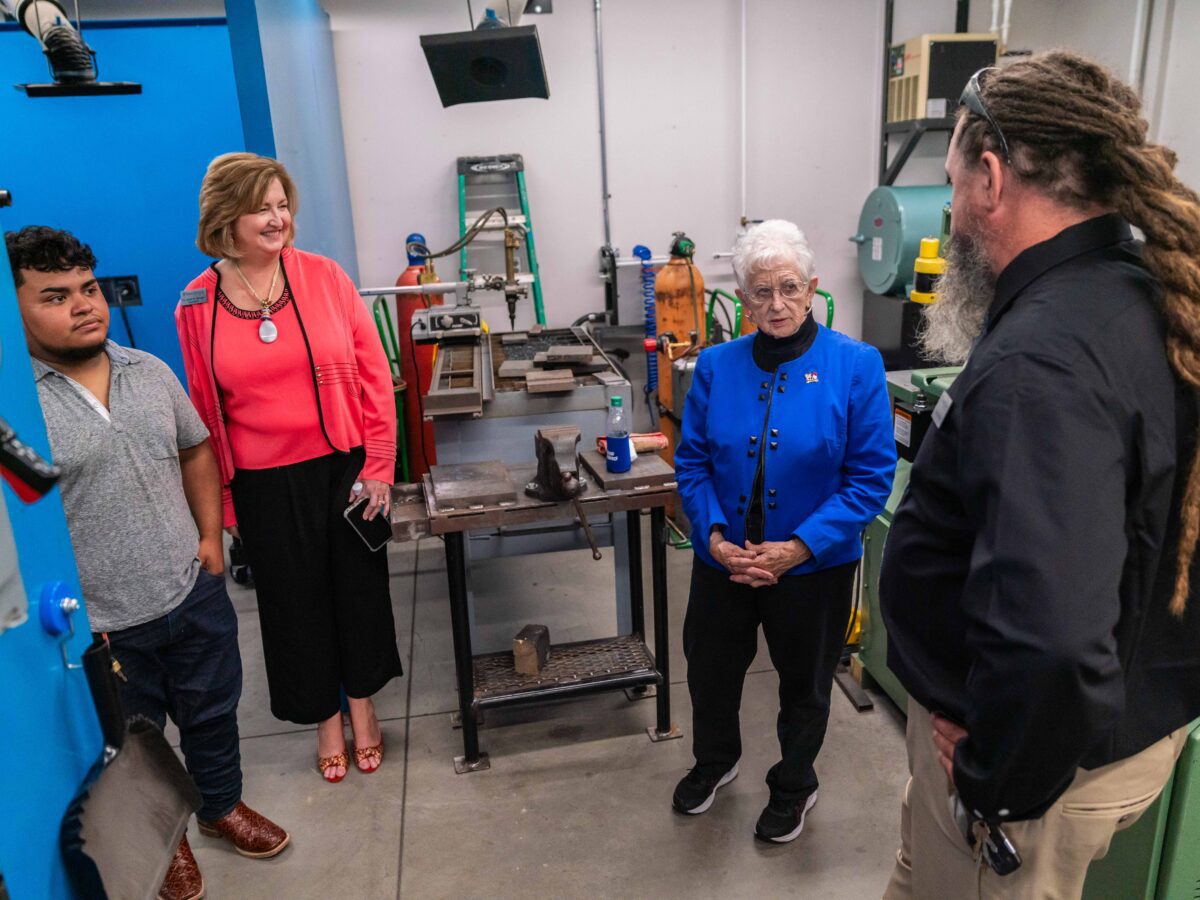
Share this story
- Congresswoman Virginia Foxx's visit to Forsyth Technical Community College marks one of several visits by a bipartisan group of lawmakers to N.C. community colleges this fall.
- “I’ve seen the work that schools like Forsyth Tech are doing and I’m very impressed,” said Congresswoman Virginia Foxx of her Aug. 23 visit to the college. As the system works to strengthen its legislative relationships and funding, such visits matter.
|
|
North Carolina Republican Congresswoman Virginia Foxx visited Forsyth Technical Community College this week, adding to the bipartisan group of elected officials to visit North Carolina’s community colleges this fall.
Foxx toured the Forsyth Tech Stokes County Center, which opened in 2016 and is one of the college’s 11 locations. The tour included discussions with Stokes Early College students, trades faculty and students, and licensed practical nursing (LPN) faculty, leaders, students, and alumni from Stokes County.
The LPN program is one of the few evening programs of its kind in the state, according a release from the college, with students driving from as far as Charlotte to earn that degree.
“I’ve seen the work that schools like Forsyth Tech are doing, and I’m very impressed,” said Foxx, who previously served as the president of Mayland Community College and as an instructor at Caldwell Community College before beginning her political career.
During her visit, Foxx joined a roundtable discussion with early college students — learning about their goals, challenges, and perspectives on the need for an accessible, quality education.
In North Carolina, nearly 70,000 high school students participated in the state’s Career and College Promise (CCP) program during the 2021-22 school year.
CCP, also known as dual enrollment, offers structured opportunities for high school students to earn college credits tuition-free. About 18,000 of those students were at early colleges, which help students complete an associate degree or earn up to two years of college credit within five years.
Foxx’s tour of the early college, nursing, and trade facilities encapsulate the wide variety of programs offered by the state’s 58 community colleges.
The N.C. Community College System (NCCCS) served nearly 600,000 students in 2022-23, according to data from the system – including students enrolled in curriculum, continuing education, and basic skills courses.
“The Forsyth Tech Stokes County Center continues to foster growth, opportunity, and empowerment within Stokes County as part of Forsyth Tech’s vision to be a catalyst for equitable economic mobility,” the college press release says. “Congresswoman Foxx’s visit underscored the significance of accessible and dynamic education in shaping the leaders of tomorrow.”
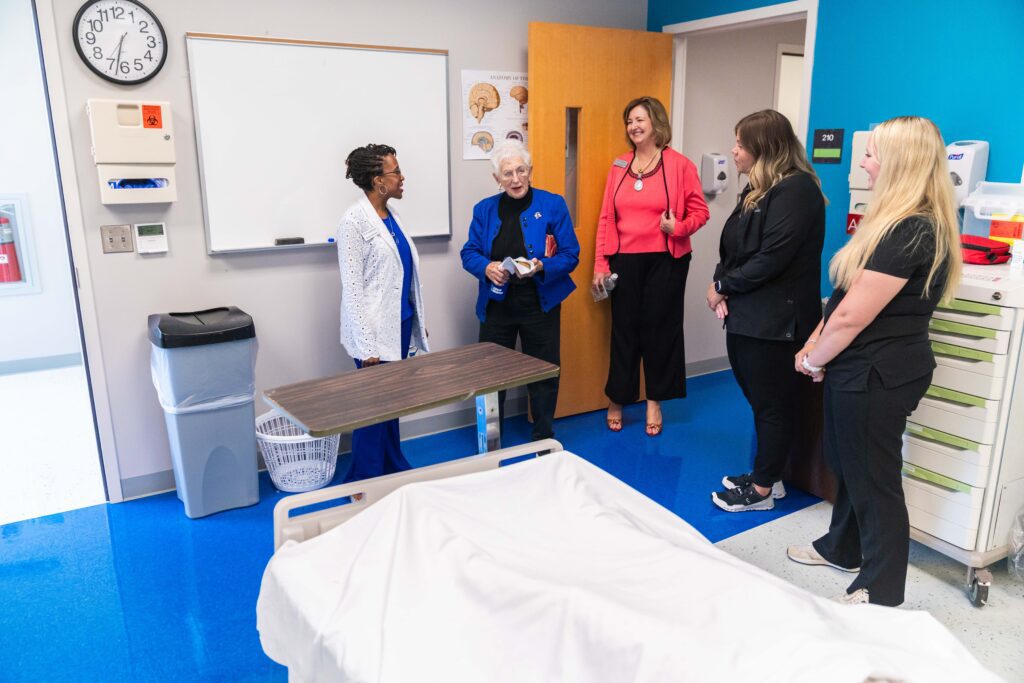
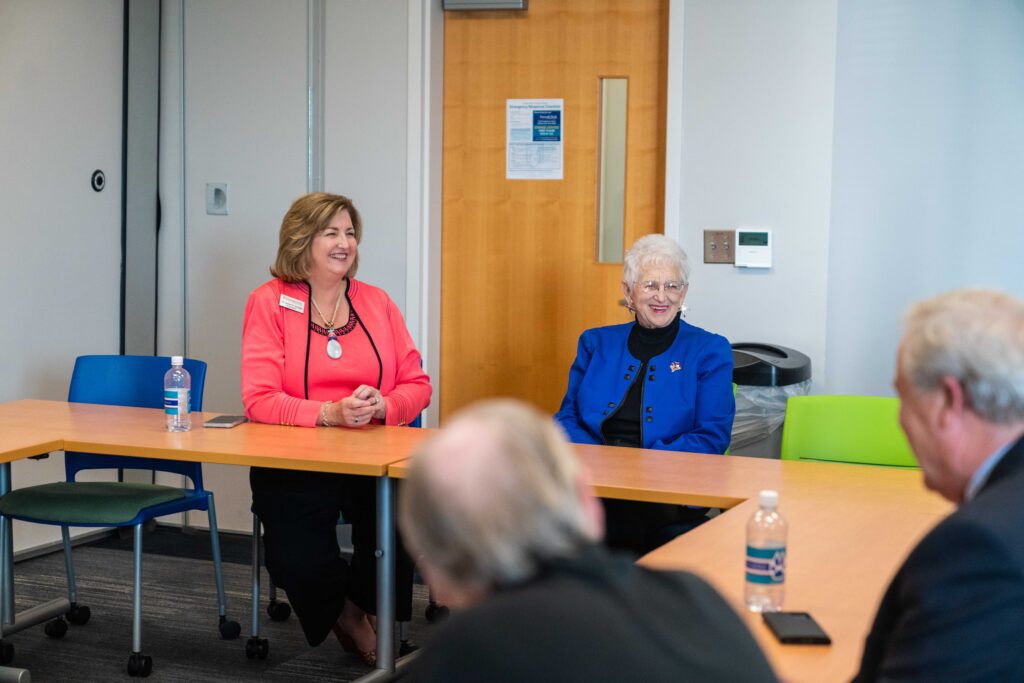
‘Work at the speed of business’
Foxx is one of several elected officials to visit a community college is recent months.
As the system works to strengthen its legislative relationships in order to increase funding for students, faculty, and staff, such visits matter.
Last month, Democratic Gov. Roy Cooper visited Central Piedmont Community College to celebrate CNBC naming North Carolina as the Top State for Business for the second year in a row. During his visit, he noted the importance of community colleges in maintaining such a status.
“North Carolina is the best state for business for the second year in a row thanks to our well-trained, diverse, and dedicated workforce,” Cooper said. “Our community colleges are our not-so-secret weapon when it comes to building a talented workforce, and it’s critical that we invest in our public schools, quality child care, our community colleges, and the health of North Carolina working families in order to continue this amazing success.”
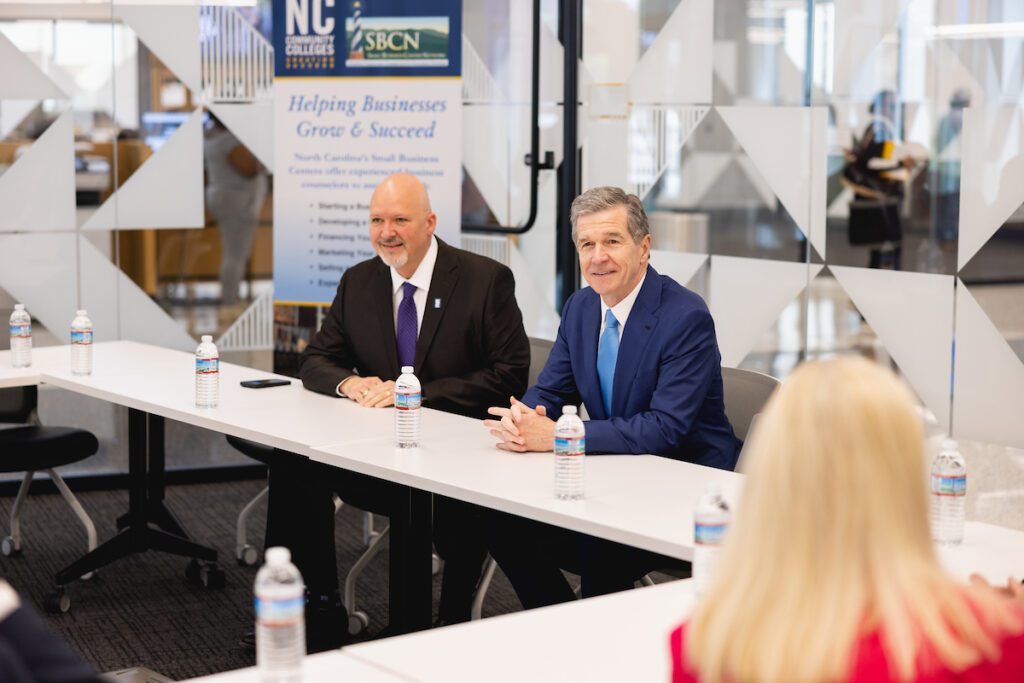
Last March, Robeson Community College hosted a legislative day luncheon on its campus, hosting North Carolina Sen. Danny Britt and North Carolina Reps. Brendan Jones and Jarrod Lowery.
At the system’s N.C. Community College Legislative Day in April, a group of bipartisan state lawmakers emphasized the importance of colleges building stronger workforces and relationships.
U.S. Republican Sen. Thom Tillis has visited several community colleges across the state, including Fayetteville Technical Community College’s defense technology summit in July, and Central Piedmont Community College’s workforce programs earlier this month.
State Sen. President Pro Tempore Phil Berger, R-Guilford, also recently gave an interview with Carolina Business Review where he talked about the future of the state’s community colleges.
“We think overall the system is among the finest in the nation,” Berger said. “Our concentration there has to do with making sure that at the state level, we have a community college governance structure that prioritizes the kinds of things that we’re seeing at the state level in terms of our economic development and in terms of the needs for job growth and development.”
Last April, the Senate introduced a bill that would overhaul governance within the NCCCS. Among other things, Senate Bill 692 would give the system president and Republican-led General Assembly more power — though some of the original proposed presidential powers were removed after the State Board of Community Colleges named Dr. Jeff Cox as the system’s new president.
The bill passed the Senate earlier this year but has not made its way through the House.
Despite any disagreements about governance, stakeholders agree they expect great things from the state’s community colleges.
Cox previously told EdNC that legislators, state leaders, and community college stakeholders alike want the NCCCS to “be the most innovative kind of forward-thinking community college system in the country.”
“If we’re going to do that, and be ready to be agile and work at the speed of business and meet business and industry where they are and be able to launch programs quickly and effectively and efficiently,” Cox said, “That takes resources.”
